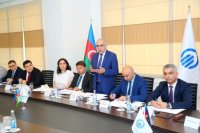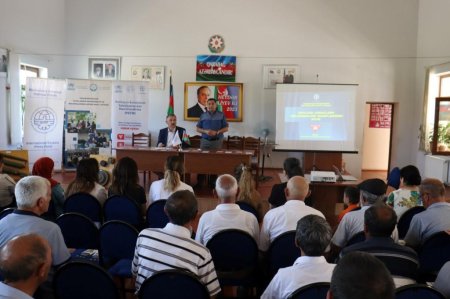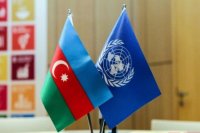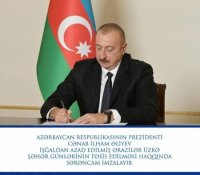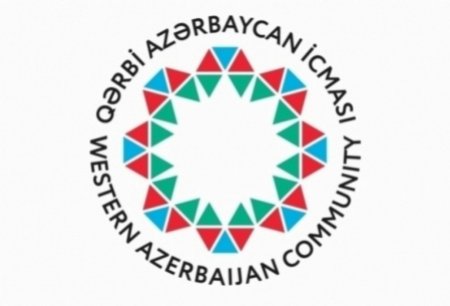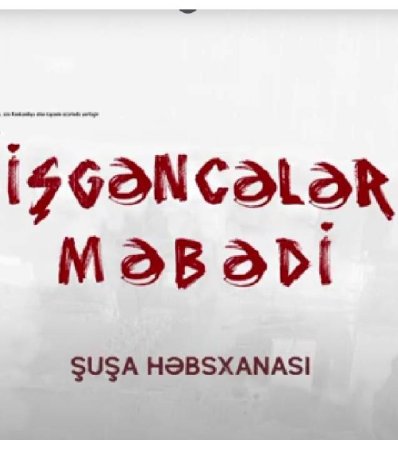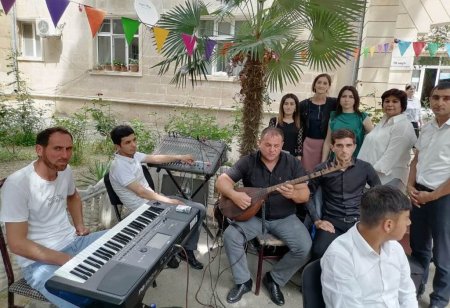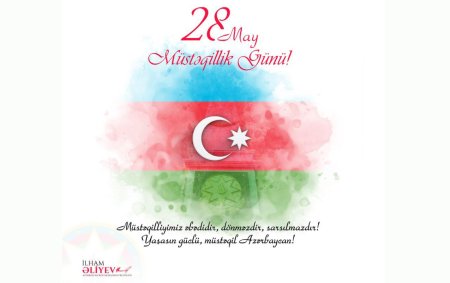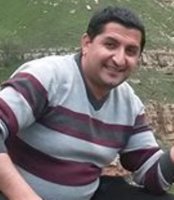“Umid” SSD PU has commenced the execution of the project titled “Enhancing Public and Social Engagement Among Students through the Improvement of Social Welfare Environments”
A public forum was convened to review the initial and interim outcomes of the pertinent sections of the "2022-2026 National Action Plan for Reinforcing the Anti-Corruption Efforts
During the event, comprehensive information was provided to the participants regarding the ongoing educational reforms in our country, the digitization of activities in the education system, the role of non-governmental organizations in these reforms, the current situation, and future prospects. Additionally, detailed updates on the progress of the relevant items from the National Action Plan were presented.
The event continued as a productive mutual discussion, with representatives from non-governmental organizations posing questions related to the topic, which were addressed by the participants.
Raising awareness on mine danger within the UNHCR’s project related to IDPs
The families of Azerbaijanis missing in the Karabakh war appealed to the UN
Azerbaijani Alphabet and Language Day is celebrated on August 1
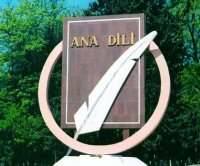 August 1 is celebrated as Azerbaijani Alphabet and Azerbaijani Language Day. This significant date was established through a decree issued by the national leader Heydar Aliyev on August 9, 2001. The Decree was a response to the successful transition to the Latin alphabet in Azerbaijan during August 2001. This transition marked a pivotal event in the social and political life of an independent Azerbaijan and holds historical significance for the nation's culture and writing practices.
August 1 is celebrated as Azerbaijani Alphabet and Azerbaijani Language Day. This significant date was established through a decree issued by the national leader Heydar Aliyev on August 9, 2001. The Decree was a response to the successful transition to the Latin alphabet in Azerbaijan during August 2001. This transition marked a pivotal event in the social and political life of an independent Azerbaijan and holds historical significance for the nation's culture and writing practices.
City days were instituted for the liberated territories
As a result of Armenia's military aggression, our ancient historical lands, which had been under occupation for nearly 30 years, were liberated from military and political control during the 44-day Patriotic War. Each day leading up to the glorious Victory was etched in golden letters in the history of Azerbaijan.
Cities such as Jabrayil, Fuzuli, Zangilan, Gubadli, Minjivan, Aghband, Bartaz settlements of Zangilan district, Hadrut settlement of Khojavend district, along with many villages including Sugovushan village of Tartar district and several villages in Khojaly and Lachin districts, were devastated during the Patriotic War, exacting a heavy toll in the lives and blood of our brave Azerbaijan Army soldiers and officers. In total, more than 300 settlements, including villages and important strategic heights in the Aghdara, Murovdag, and Zangilan directions, were liberated from occupation. The war culminated with the liberation of Shusha, the crown jewel of Karabakh, and Armenia was compelled to sign the act of capitulation.
Azerbaijan's resounding victory on the battlefield was mirrored at the political level, as Armenia was obliged to release Agdam, Kalbajar, and Lachin regions from occupation, thereby restoring historical justice.
Over the 30-year occupation, our cities, villages, and settlements suffered destruction by Armenia, with our cultural heritage severely compromised, and our historical, cultural, and religious monuments, including mosques, vandalized and destroyed. The regions of Karabakh and Eastern Zangezur, now freed from occupation, are undergoing rapid reconstruction, mine clearance operations, and extensive restoration efforts.
Western Azerbaijan Community and other civil society organizations in Azerbaijan appeal to international community
The Western Azerbaijan Community and other civil society organizations in the Republic of Azerbaijan have sent an appeal to the international community. "Throughout the tumultuous 20th century, Armenia mercilessly subjected ethnic Azerbaijanis to unspeakable horrors, unleashing displacement and various forms of persecution that inflicted profound suffering and indelible scars on their memories. The brutal expulsion of Azerbaijanis from Armenia between 1987 and 1991 marked the appalling conclusion of a century- long campaign to eradicate them from what was once their ancestral homeland. The Azerbaijani settlements in Armenia, which were once flourishing cradles of Azerbaijani culture, lay abandoned yearning for their rightful owners. As if this malevolence were not enough, the 1991-1994 occupation of Azerbaijani territories by Armenia brought an even darker chapter of suffering. Approximately 800,000 Azerbaijanis were savagely uprooted from their homes, forced into a cruel fate of displacement. Cemeteries and sacred places of Azerbaijanis were demonstratively destroyed, desecrating their cultural legacy and inflicting irreparable wounds..."
A documentary film titled "Temple of Torture-Shusha Prison" was created with the support of the State Support Agency for NGOs to convey the story of Armenia's war crimes
Mingachevir Children and Family Support Center hosted an event within the UNHCR’s project related to IDPs
Azerbaijan marks May 28 - Independence Day
105 years have passed since the establishment of the Azerbaijan Democratic Republic, the first democratic secular state in the Muslim East, on May 28, 1918. Independence Day has been celebrated in the liberated lands for already three years. At the plenary session of the Azerbaijani Parliament on October 15, 2021, a new law "On Independence Day" was adopted. On the same day, President Ilham Aliyev approved the law. With the approval of the law, May 28 - Republic Day and October 18 - State Independence Day were renamed. May 28 was declared 'Independence Day', and October 18 was declared 'Day of Restoration of Independence'. The Russian Empire collapsed during the February Revolution of 1917. The national movement of the peoples that were oppressed by the Tsarist state in the country began. On May 28, 1918, the Azerbaijan Democratic Republic (1918-1920) – the first secular democratic state founded in the Muslim East.



